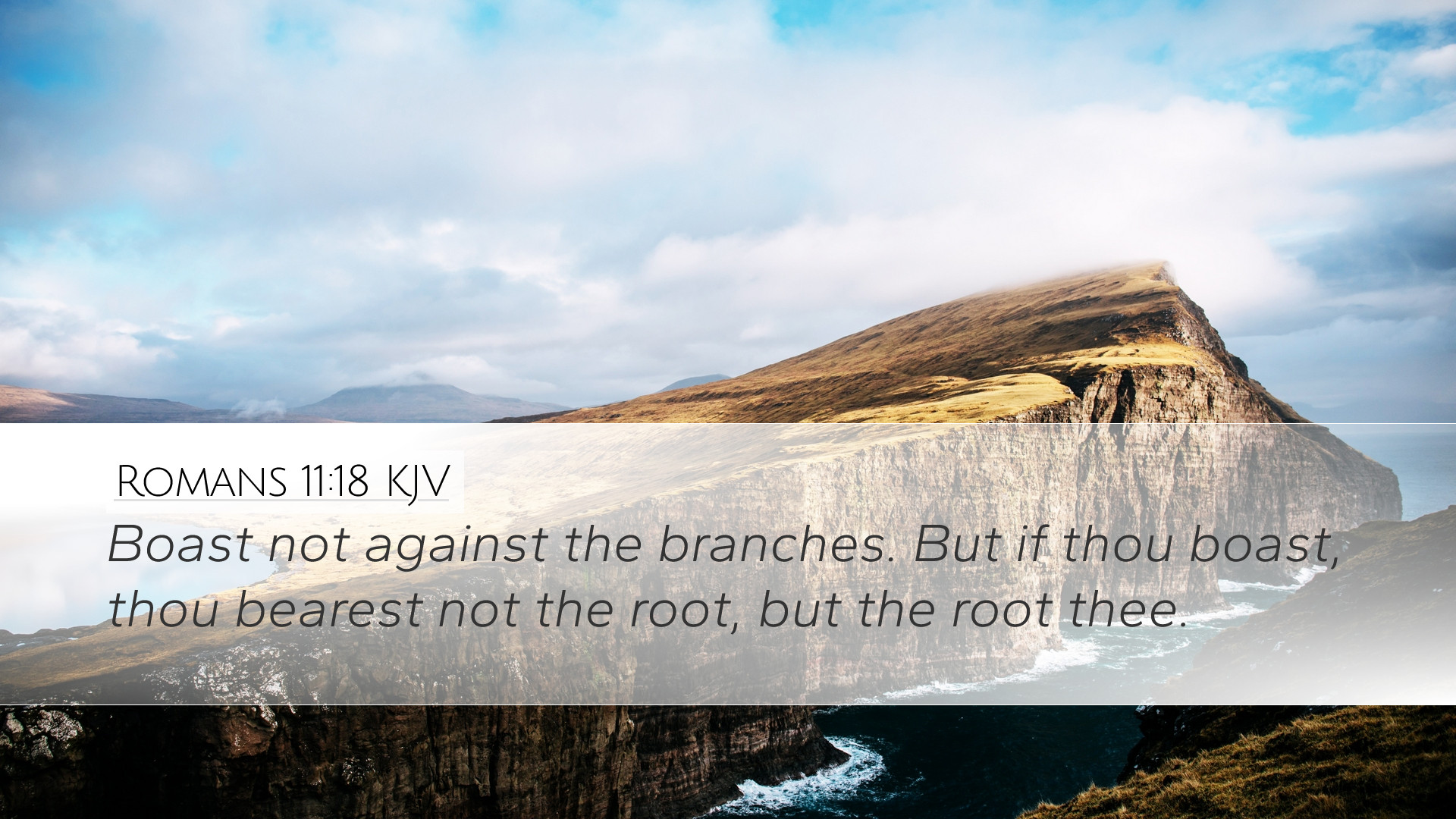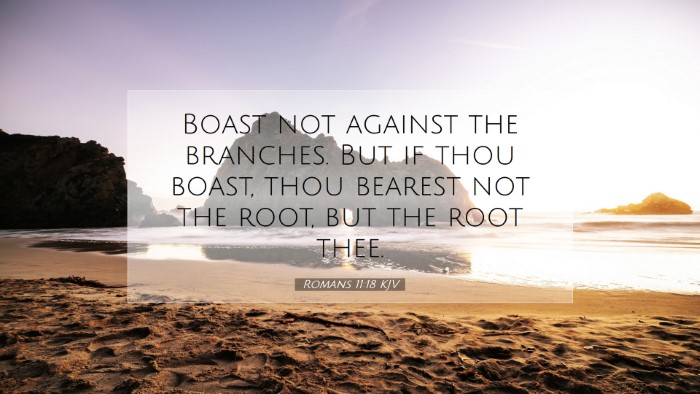Old Testament
Genesis Exodus Leviticus Numbers Deuteronomy Joshua Judges Ruth 1 Samuel 2 Samuel 1 Kings 2 Kings 1 Chronicles 2 Chronicles Ezra Nehemiah Esther Job Psalms Proverbs Ecclesiastes Song of Solomon Isaiah Jeremiah Lamentations Ezekiel Daniel Hosea Joel Amos Obadiah Jonah Micah Nahum Habakkuk Zephaniah Haggai Zechariah MalachiVerse
Romans 11:1 Romans 11:2 Romans 11:3 Romans 11:4 Romans 11:5 Romans 11:6 Romans 11:7 Romans 11:8 Romans 11:9 Romans 11:10 Romans 11:11 Romans 11:12 Romans 11:13 Romans 11:14 Romans 11:15 Romans 11:16 Romans 11:17 Romans 11:18 Romans 11:19 Romans 11:20 Romans 11:21 Romans 11:22 Romans 11:23 Romans 11:24 Romans 11:25 Romans 11:26 Romans 11:27 Romans 11:28 Romans 11:29 Romans 11:30 Romans 11:31 Romans 11:32 Romans 11:33 Romans 11:34 Romans 11:35 Romans 11:36

